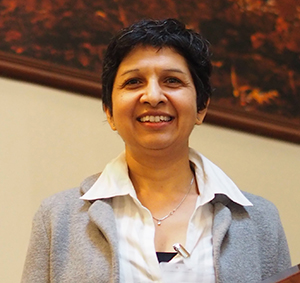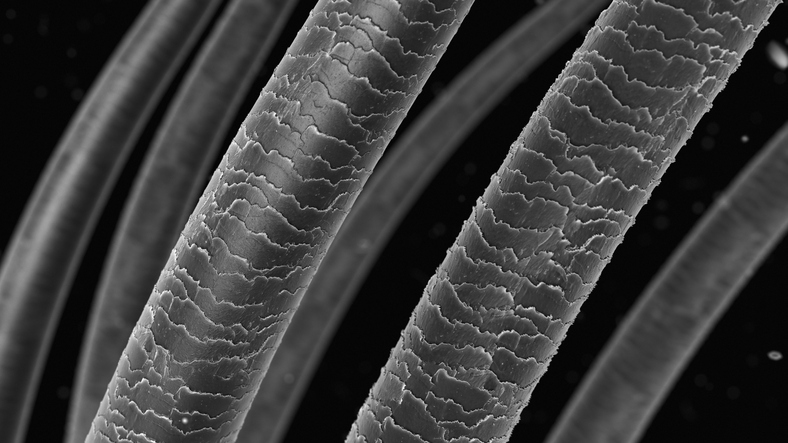Monday, 06 April 2020
Scientists are looking for volunteers to take part in a major new study to understand how the COVID-19 pandemic is affecting the physical and emotional health of people in the UK.
The COVID-19 Stress and Health Study, is being carried out by experts at the University of Nottingham, King’s College London and with the support of the stress hormone testing company MyFertile. The survey is UK-wide and will explore the emotional and physical impact of COVID-19 on the health of our nation.
The COVID-19 pandemic has resulted in unprecedented disruption to the fabric of society, the health service and economy. Social distancing measures have been introduced to slow the spread of the virus and this new and constrained way of living, as well as the other challenges resulting from the pandemic, are already likely to be affecting emotional and physical well-being.

The new study will examine these effects by taking repeated assessments of emotional well-being in a sample of the population using questionnaires and by collecting samples of hair which contains stress hormones.
Kavita Vedhara, Professor of Health Psychology, at the University of Nottingham, is leading the study. She says: “We want to understand how the COVID-19 pandemic is affecting the physical and emotional health of people in the UK.
“We have worked in the area of stress and health for 30 years now, and one of the key things we’ve learnt is that when we experience stressful situations for protracted periods of time, such as during this pandemic, it can have real implications for our health and wellbeing. So, we are seeking to understand, whether and how the pandemic is affecting us emotionally and physically.”
 Professor Kavita Vedhara
Professor Kavita Vedhara
The team will do this in two ways. Firstly, participants will be asked to complete a short online survey on three occasions; on entry into the study, 12 weeks later, and potentially again after a change in social distancing has been introduced.
Participants will also be asked to provide a small sample of hair for later measurement of the stress hormone cortisol.
Professor Vedhara explains: “Cortisol is really important in regulating the normal functioning of our body, in particular it’s important in regulating how our immune system works, so you can see how levels of this hormone might be really important in determining our future physical health. The reason we are measuring it in hair is twofold - firstly because it will be really simple and easy for people to do at home, but also – because it is an incredibly reliable way of looking at long term measures of this hormone.
“Providing these hair samples will allow us to explore whether any stress you experience today and in the coming weeks could affect your health in the future. We will be seeking funding to measure cortisol in these samples at the end of the study.”

Once the team has collected the data, the first outcome of interest will be to look at the emotional impact of the pandemic in its first few weeks, in particular looking at levels of anxiety and depression.
They will then consider how these effects on emotional well-being change after 12 weeks of living with the pandemic; and what happens as and when there are changes in social distancing regulations
The team will also examine whether the emotional effects are associated with measurable physical changes by assessing how levels of the hormone cortisol change over the 12-week period.
Recruitment to the first phase of the study is only open for the month of April so that the team can capture the early effects of the pandemic. So please visit the study website –https://www.covidstressstudy.co.uk/ for more information on how you can take part.
Story credits
For more information please contact Professor Kavita Vedhara from the School Medicine at the University of Nottingham, email Kavita.Vedhara@nottingham.ac.uk or Charlotte Anscombe Media Relations Manager for the Faculty of Medicine and Health Sciences on +44 (0)115 951 5793 Charlotte.anscombe@nottingham.ac.uk or Emma.rayner@nottingham.ac.uk
Notes to editors:
About the University of Nottingham
Ranked 97 in the world and 17th in the UK by the QS World University Rankings, the University of Nottingham is a founding member of Russell Group of research-intensive universities. Studying at the University of Nottingham is a life-changing experience, and we pride ourselves on unlocking the potential of our students. We have a pioneering spirit, expressed in the vision of our founder Sir Jesse Boot, which has seen us lead the way in establishing campuses in China and Malaysia - part of a globally connected network of education, research and industrial engagement.
Nottingham was crowned Sports University of the Year by The Times and Sunday Times Good University Guide 2024 – the third time it has been given the honour since 2018 – and by the Daily Mail University Guide 2024.
The university is among the best universities in the UK for the strength of our research, positioned seventh for research power in the UK according to REF 2021. The birthplace of discoveries such as MRI and ibuprofen, our innovations transform lives and tackle global problems such as sustainable food supplies, ending modern slavery, developing greener transport, and reducing reliance on fossil fuels.
The university is a major employer and industry partner - locally and globally - and our graduates are the third most targeted by the UK's top employers, according to The Graduate Market in 2024 report by High Fliers Research. Alongside Nottingham Trent University, we lead the Universities for Nottingham initiative, a pioneering collaboration between the city’s two world-class institutions to improve levels of prosperity, opportunity, sustainability, health and wellbeing for residents in the city and region we are proud to call home. More news…